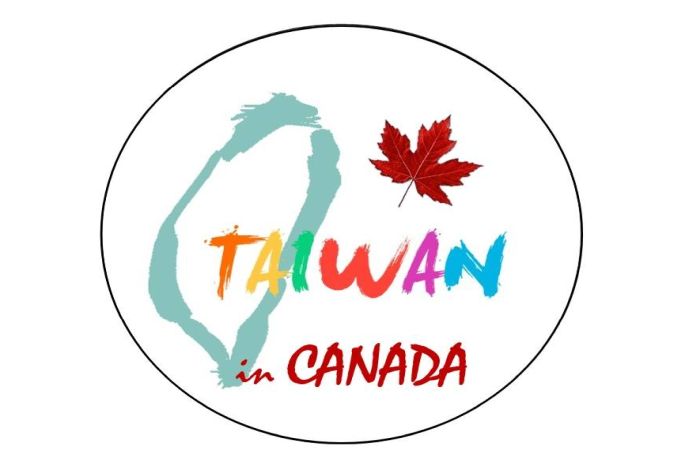“The Caribbean needs an entirely new tourism product and the COVID effect has provided an unwelcome but unavoidable bunch of opportunities to turn the challenges into new opportunities.”~ BB
By Earl Bousquet
Abusing relaxations
Christmas is a time when almost every Caribbean person – who can – return home from Europe and the USA – and most also unwilling to spend 14 days in quarantine to ‘enter my own country’ – relaxed protocols for nationals and abuse of voluntary but hardly-effectively monitored home quarantine combined to make December 2020 (if not the) most deadly month for COVID.
Holiday travel also increasing at both airline and cruise levels – Delta and the SARS-CoV-2 variants of the original COVID-19 now accompanied by the new and supposedly more-deadly Omicron variant fanning both fears and expectations of a ‘Blight Christmas’ (instead of a Bright one) this time around. Uncertainties also abound with the reluctance or discouragement of frontline health workers (Customs and Immigration officers; airline and shipping staff who meet, greet and interact with visitors) to vaccinate.
The Center cannot hold
The international assessments of tourism’s regional rebound see the Caribbean way ahead of most other regions in terms of recent rebound performances and the regular assessments of an undisturbed future offer even more promising figures.
But clearly, the experiences of the past 20 months have also shown tourism’s center just cannot hold the old way and new approaches are very much needed, just as old ways that still work also need to be revisited in these new times.
Interestingly (and regrettably), COVID traveled the world through tourism, cruise ships and airlines delivering the virus from port to port through borders and boundaries, taking the virus from country to country, never mind the myriad entry requirements and certifications, quarantines and other safety entry protocols.
The need to protect source markets for favorite destinations has seen nations keep national interest at the forefront of all regional protocols, some easily bursting agreed travel bubbles with pin-pricks of nationalism in the name of economic realism.
Vaccine diplomacy and wars
Likewise, in the global war on COVID-19, vaccine diplomacy has resulted in the nations with the biggest vaccine manufacturers targeting poor and developing countries for special treatment – but only with their vaccines.
The result: 25 Caribbean nations and non-independent territories are receiving 5.5 million Pfizer vaccine donations from the Biden administration, while Washington quickly returned over 60 million stockpiled and unprofitable UK-backed ‘not-for-profit’ Oxford-AstraZeneca vaccines to India, just after the Delta variant was reported there earlier this year.
The vaccine wars also continue on the merchant front, with poor African, Caribbean, Pacific, Asian and Latin American nations and populations used as cannon fodder, November ending with yet another indication of how unfair application of anti-virus mechanisms tend to target and punish poor countries first and worst.
Good and bad news
Implementation of mandatory vaccination or institution of protection protocols at workplaces also applies to tourism facilities, but where application tends to affect the resumption of any income-generating possibility, the natural response is to ‘bawl for murder’ before trying to understand why.
Against such a background, Caribbean politicians (and tourism ministers in particular) must be absolutely careful not to be accused of misleading or under-informing people as to the true possibilities, or lack thereof, in relation to tourism returning to the proverbial Good Old Days that have long been replaced by virtual reality in the new normal age.
Unfortunately, in most cases, authorities in over-dependent territories tend to always concentrate more on offering good news, but neglecting the bad news altogether only helps make the bad worse.
Riding the waves … all is not lost
Regional industry leaders like Sandals Resorts International (SRI), CARICOM governments, the University of the West Indies (The UWI) and the regional private sector have allied with partners in Europe and North America to ride the region through the COVID waves, while expressing demonstrable confidence in the future by together investing in the creation of new alliances.
SRI promise to create 5,000 new tourism jobs across the region in five years and to create a regional tourism university through tripartite efforts (SRI, The UWI and Florida International University) in Jamaica, in name and memory of the late Gordon ‘Butch’ Stewart, who died in the USA in January 2021.
At national levels too, Caribbean nations have had to return to the drawing board and keep planning for both the expected and the unexpected, without expecting to ride the waves and return to selling the region to the world on the basis of the traditional sea, sand and sun, beaches and rum punches.
Early actions
The industry’s survival will heavily depend on tourism bodies and decision-makers treating the recovery effort in the same way that experience has taught the world – taking early action to prevent infections instead of waiting to improve health facilities to handle unmanageable spikes resulting from too-late starts.
In Saint Lucia, public and private tourism bodies are together assessing the common challenges, with stakeholders exchanging with each other and the tourism ministry about what is to be done and where to begin.
Big and small players have come to the table with equal determination to find common solutions, but just as commonsense is a very scarce commodity, arriving at agreed or agreeable conclusions will most likely be more difficult than easy.
Attitudinal changes
However, the combined effects of COVID on the health of each nation and the economies of every country – and particularly those dependent on tourism – make it (at least) twice more necessary for the stakeholders to give and take more to make-or-break in terms of the industry’s recovery.
The Caribbean needs an entirely new tourism product and the COVID effect has provided an unwelcome but unavoidable bunch of opportunities to turn the challenges into new opportunities.
Saint Lucia’s annual Staycation packages for nationals at lower rates are intended to attract locals to the local tourism product has been historically hit by several factors; from its creation of less profits to traditional concepts that don’t see locals as being or treated like ‘tourists’.
But, if encouraging Caribbean citizens at home and abroad to also ‘Discover’ units of their collective home have always been a politically correct sideshow, changes of attitudes will also have to include Caribbean citizens interacting with visitors, understanding, accepting and being guided by the fact that everyone disembarking from an airplane or a cruise ship is a visitor, irrespective of color, sexual preference or country of origin.
Additional attractions
It also means redesigning tours to highlight new and additional attractions ranging from more untold stories of Caribbean history and its people’s origins, celebrated achievements in sports, music and culture, giving new meaning to health tourism, decentralizing the tourism product – and, like national creole languages, take tourism to school(s).
After all, with a tourism university underway, Caribbean countries and tourism sectors need not wait until it opens its doors to prepare its first students.
Global actions
But the cumulative effect(s) of COVID on all aspects of Caribbean life make it absolutely necessary for tourism’s recovery efforts to also coexist with national, regional and international efforts to fight the pandemic globally through united actions by governments and stakeholders everywhere.
Just as the WHO continues to insist that only a united and equal global response that treats all countries the same according to their needs will help end COVID, a global tourism recovery response is also being coordinated by the world’s major players.
For example, Organization of Eastern Caribbean States (OECS) director-general Dr Didacus Jules attended the COP-26 Climate Change Summit in Glasgow last month and signed-up member-states to a global accord that will allow them to both contribute to and benefit from new approaches to rebuild tourism along with climate-resilient, climes with expected climate financing support.
Yesterday, today and tomorrow
Caribbean tourism-dependent nations can and should now start, as of now, examining those new and old approaches to tourism that can and do allow for participation in beneficial international exercises like green bonds, debt for nature swaps and other nature-based approaches that can and will make the tourism industry less dependent on creation of exclusive tropical ‘Garden of Eden’; holiday escapes for preferred European and American visitors and more reliant on regional and home-grown changes that will also still always attract visitors in search of unique vacations.
It won’t all happen overnight. But, COVID-19 has provided tourism with the world over with a much-needed and long-overdue opportunity to revisit yesterday today – and return to the drawing board with clear minds and fresh visions that will not erase the past but won’t allow sweet memories of yesteryear to sour the Caribbean’s tomorrows.
Related: Part 1







